A great way to get me to read something you wrote/drew/whatever is to put the word “apocalypse” in the title. I kind of love every kind of fiction that imagines apocalyptic or post-apocalyptic worlds, and I’m always interested in weird and different interpretations of that concept. I guess it isn’t particularly original of me, but I think that’s great because it means there’s always more apocalyptic fiction to read!
So anyway, I basically bought this book, “Beta Testing The Apocalypse,” because of its title. Sometimes I’ll just go on Amazon, or walk into Forbidden Planet or whatever, and just pick a few comic books at random. I figure that way I’ll end up discovering awesome stuff at least half the time, which has turned out to be a low estimate, actually.
And it was during one of these wide-net-casting sessions that I found “Beta Testing The Apocalypse,” by Tom Kaczynski.
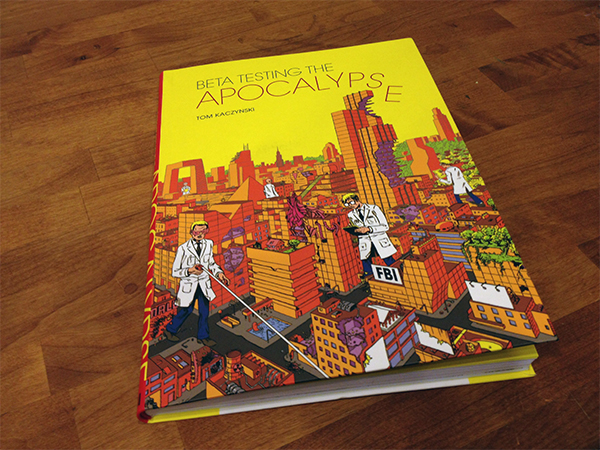
“Beta Testing The Apocalypse” isn’t REALLY about an apocalypse, or apocalypses, as we usually talk about them. It’s more about the ongoing “slow apocalypse” that, according to some (like me! hi there) is HAPPENING EVEN AS YOU READ THIS.
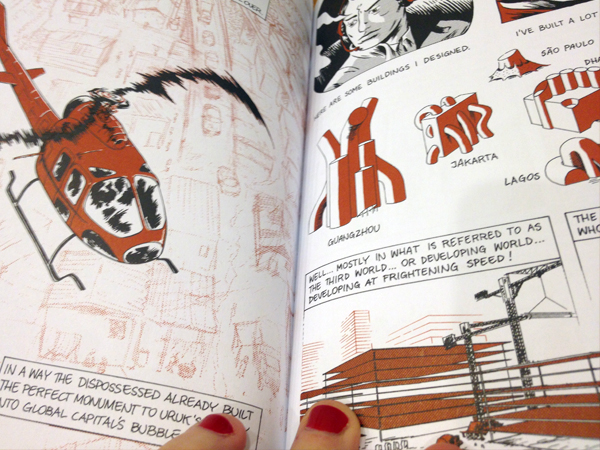
Kaczynski’s conception of the slow apocalypse, which he conveys with a series of vaguely connected short stories, centers around cities and their surroundings and how we (humans, that is) interact with urban development, suburban sprawl, traffic jams, apartment buildings, city sounds, and so on.
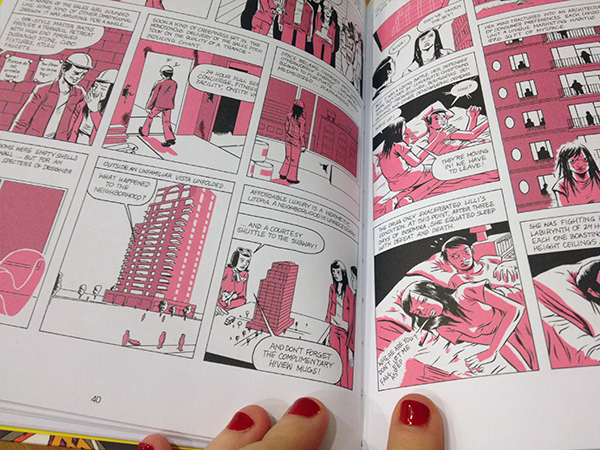
Even though this stuff obviously adheres to a strict definition of “comics,” I found myself thinking of each story more as an illustrated narrative. I know that’s kind of a tricky or at the very least blurry distinction, but Kaczynski’s style involves a pretty dedicated commitment to setting scenes with lyrical descriptions as much as imagery, which is something I associate with the space between “regular” fiction and comics.
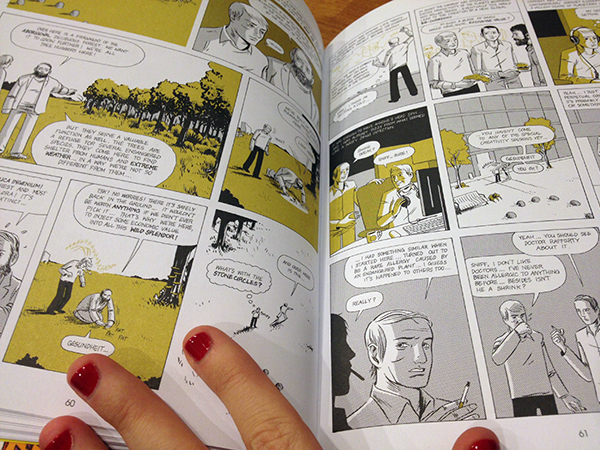
I kind of expected to feel like these stories were heavy-handed anti-technological bullshit or something, but instead they’re super nuanced and layered. Their message isn’t that cities and technology are necessarily bad or evil; rather each story looks at how humanity is changed by its relationship to cities and the rapid development of technology and so on. Sometimes that change is negative, but usually it’s just different, and it’s always presented in a balanced & ambiguous way.
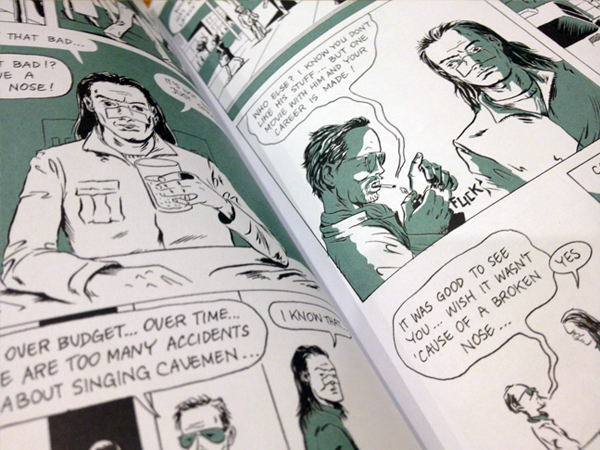
Also, the longer stories are interspersed with one-page short-shorts about noise.
You should read it.